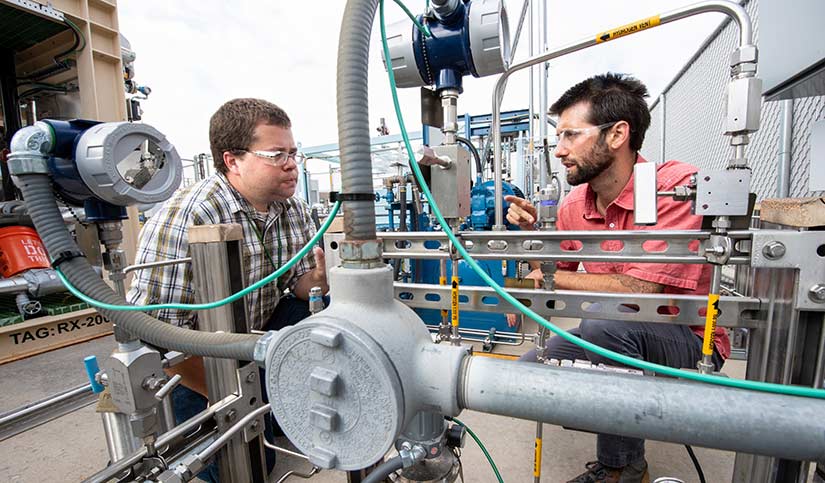Energy Sciences
The Energy Systems Integration Facility (ESIF) energy sciences laboratories are dedicated to advancing technology through research, development, testing, and evaluation.

NLR's energy sciences laboratories make it possible to scale up energy technology manufacturing capabilities, support fuel cell and electrolyzer research, and evaluate the electrochemical properties of novel materials.
Researchers use the ESIF's energy sciences laboratories to develop and evaluate new fuel cell and electrolyzer materials and manufacturing technologies, research new thermal energy storage systems and advanced hydrogen sensor technologies, and investigate materials that can be used as high-temperature heat transfer fluids or thermal energy storage media in concentrating solar power plants. Unique to the ESIF's energy sciences labs is an integrated hydrogen distribution system that leverages on-site hydrogen production through electrolysis to deliver ultrahigh-purity hydrogen for bench-scale use.
This collection of laboratories offers users more than 9,000 ft2 of modern wet chemistry laboratory space with:
- Chemical fume hoods, compressed air, vacuum, hydrogen, nitrogen, and specialty gases
- Analytical instrumentation, including inductively coupled plasma mass spectrometry, Fourier-transform infrared spectroscopy, thermogravimetric analysis, and differential scanning calorimetry
- High-throughput membrane conductivity characterization
- Hydrogen fuel cell test stations (up to 6 kilowatts)
- Electrolysis test stations and advanced segmented cell test capabilities
- Roll-to-roll coating and processing techniques
- Digital microscopy
- Sensor testing apparatus
- Hydrogen fueling infrastructure capabilities, including component reliability, fueling protocol development, hydrogen storage, plug-and-play hardware evaluation, safety sensors, and monitoring.
Share
Last Updated Dec. 4, 2025
